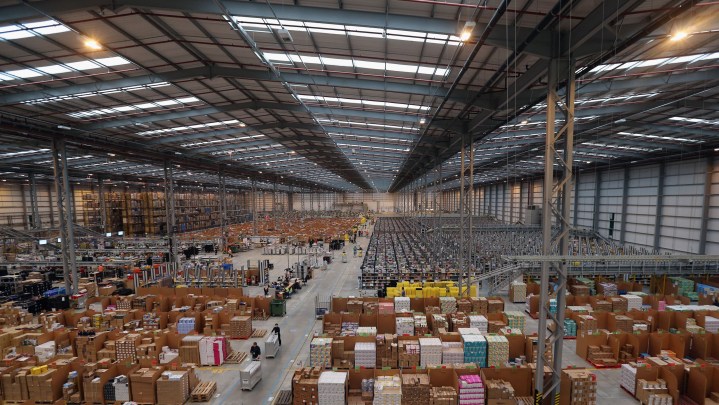
Warehouse space in high demand as companies shift to e-commerce
Warehouse space in high demand as companies shift to e-commerce

Just as the housing market across most of the country is red-hot, so too is commercial real estate, specifically warehouse space.
Lizzy Newsome owns Kappa Toys on the Las Vegas Strip. It’s where you go if you want to pick up the latest Japanese action figures or maybe a retro Batman dice kit.
Newsome said her business more than doubled its projected sales in the past year, which meant she had to find a bigger warehouse to put all those toys in.
“Honestly, the new space is, like, 10 times bigger. We have, like, 400 square feet right now, and we’re moving into a 4,000-square-foot warehouse,” she said.
Now that Kappa has more warehouse space, it’ll be able to shift some of the focus to online offerings, Newsome said. And that shift to e-commerce is in part what created the need for bigger and more warehouses.
A new report from the commercial real estate firm CBRE says e-commerce is expected to grow to a quarter of all retail sales by 2025. If that happens, the U.S. will need an additional 330 million square feet of distribution space to handle it.
“Retailers, general wholesalers, third-party logistics providers are seeking accommodation,” said Matt Walaszek, a research analyst at CBRE. “They need space to store their goods, and then with all the supply chain volatility, we’re expecting even more demand for warehouse space.”
Walaszek said the old “just in time” inventory management strategy, in which retailers keep just enough product to meet immediate needs, just doesn’t work anymore.
If a retailer doesn’t have the infrastructure or technology to keep up with those changing demands, “you’re a retailer that goes out of business,” said K.C. Conway, chief economist at CCIM Institute, a commercial real estate organization.
“The old retail big box is now a warehouse big box,” he added.
Conway said that, of course, the big players like Amazon, Walmart, Home Depot and others have accelerated this shift to more warehouse space, but even small businesses — like Kappa Toys in Vegas — have to be ready to adjust to new logistics realities on a dime.
There’s a lot happening in the world. Through it all, Marketplace is here for you.
You rely on Marketplace to break down the world’s events and tell you how it affects you in a fact-based, approachable way. We rely on your financial support to keep making that possible.
Your donation today powers the independent journalism that you rely on. For just $5/month, you can help sustain Marketplace so we can keep reporting on the things that matter to you.

















